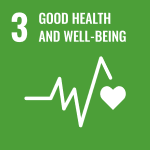Eating Ethically
Document Type
Book Chapter
Publication Date
2015
Keywords
food habits, healthy eating, eating ethically, vegetarian eating, body image, food choices
Abstract
Magazine articles and self-improvement books tell us that our food choices serve as bold statements about who we are as individuals. Acquired Tastes reveals that they say more about where we come from and who we would like to be. Interviews with Canadian families in both rural and urban settings reveal that age, gender, social class, ethnicity, health concerns, food availability, and political and moral concerns shape the meanings that families attach to food. They also influence how parents and teens respond to discourses on health, beauty, and the environment, a finding with profound implications for public health campaigns.
Faculty
Faculty of Human & Social Sciences
Copyright
© UBC Press
Terms of Use
Terms of Use for Works posted in SOURCE.
Creative Commons License

This work is licensed under a Creative Commons Attribution-Noncommercial-No Derivative Works 4.0 License.
Original Publication Citation
Johnston, J., Rodney, A. & Szabo, M. (2015). Chapter 3: “Ethical Eating”. In Beagan, B., Chapman, G., Johnston, J., McPhail, D., Power, E., & Vallianatos, H.(Ed.), Acquired Tastes Why Families Eat the Way They Do. Vancouver, British Columbia: UBC Press.
SOURCE Citation
Johnston, Josée; Rodney, Alexandra; and Szabo, Michelle, "Eating Ethically" (2015). Publications and Scholarship. 15.
https://source.sheridancollege.ca/fhass_publications/15


